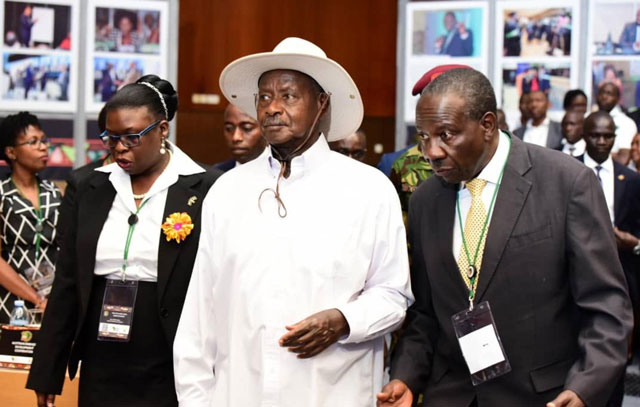
Kampala, Uganda | THE INDEPENDENT | It no longer makes sense to compel companies to provide a physical address for tax assessment when several are minting money without offices, the Commissioner General of Uganda Revenue Authority-URA, Doris Akol has observed.
Akol, who was addressing tax administrators from African states at Serena hotel on Tuesday, said one of the challenges they have to address are companies that are hard to locate. Taxing companies operating online is probably one of the biggest puzzles for tax collectors the world over.
“We are cognizant of the fact that there are challenges we need to address – the digital economies. For example, Jumia, Google, Facebook and Kikuu, to mention but a few are around us. We have all used them in a way or another, and yet we are not registering revenue numbers in terms of collections from them,” Akol said.
Adding that, “This is because most of our policies had probably overlooked them. For instance, for one to be assessed for tax, they must have a physical address. This is a pre-requisite that doesn’t tally with digital economies because they operate online and barely have a physical footprint, yet they mint lots of money in sales.”
The African Tax Administrators’ Forum (ATAF) brings together tax administrators from 38 African countries. It has been in existence for ten years. On his part, President Yoweri Museveni told tax collectors that a free trade agreement that most African governments have signed to will widen market, boost business will consequently up domestic taxes.
At least 54 countries have already endorsed the African Continental Free Trade Area (ACFTA), which take effect mid-next year. Museveni, who was the chief guest at the forum hosted by URA, said the arrangement comes with challenges, including the fact that countries will forego some taxes by opening up their borders for goods from fellow African countries.
Museveni said: “In the case of Uganda and, indeed, most African countries, large markets support more trade in goods, services and assets produced by job-creating enterprises which generate income and create jobs.”
On the ATAF, which allows countries to share tax information and implement initiatives to curb tax cheats, Museveni said Uganda takes note of the changing global conditions, threats to revenue bases through illicit financial flows and tax evasion.
******
URN
 The Independent Uganda: You get the Truth we Pay the Price
The Independent Uganda: You get the Truth we Pay the Price


